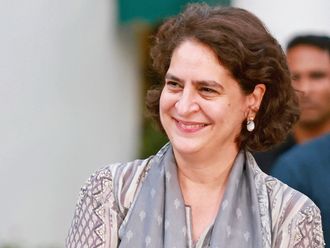
Saudi Arabia has the largest percentage of nationals in the work force in the Gulf Cooperation Council.
Two-thirds of the slightly more than 32 million residents of the country are Saudis, of which almost 70 per cent are below the age of 30.
A baby boom that started, following the oil boom years, had much to do with the high rate of population expansion.
While the population continues to grow, so does the demand for jobs for those Saudis who have finished their schooling and are now ready to enter the workforce.
They face stiff competition from the previously ensconced expatriates who had taken over many professions that were wanting and have executed their duties professionally over the years.
Some years back, the government of Saudi Arabia began a series of moves to reduce dependence on foreigners and open up the marketplace to a growing number of Saudi workers.
They issued directives restricting one profession after another to be occupied solely by Saudis.
Perhaps the largest impact was the introduction of females in the work force a few years back, women who started as cashiers and salespersons in establishments that served women.
Initially, the government’s moves prompted strong objections from the religious establishment who feared for the virtue of unescorted women mingling openly with men.
Clerics took it upon themselves to issue repeated edicts on why a woman should keep herself away from the prying eyes of strangers.
But economic needs dictate social changes and Saudi Arabia was not immune to such changes.
The voices of protest eventually grew weaker as more and more women took to the workplace.
The drive to ensure more jobs are available to Saudis is more critical today in a region awash with conflicts.
The government is acutely aware of the fact that an idle person, especially an unemployed one, could be drawn to join miscreants.
Just last week, the Saudi minister of Labour and Social Development issued a fresh decision, restricting work in outlets of 12 activities and occupations to Saudis only, starting from the beginning of the next Hijri year, which falls sometimes in September this year.
No more expats in 12 jobs
The 12 occupations that will no longer be manned by expatriates are: Watch shops, optical stores, medical equipment stores, electrical and electronics stores, outlets selling car spare part, building material shops, outlets selling all types of carpets, automobile and motorcycle shops, shops selling home furniture and ready-made office material, outlets selling ready-made garments, children’s clothes and men’s supplies, utensils shops and pastry shops.
The ministry said the decision does not affect the memorandums of understanding signed with various regional governorates to restrict jobs to Saudis — a memorandum that had added more jobs to the list.
The ministry also emphasised that the drive to bring more women into the workforce will continue as planned.
This drive will focus on shops selling ladies’ perfumes, shoes, bags, stockings and ready-made garments.
Kiosks selling accessories used by women will also be fully controlled by women, in addition to sections in malls and supermarkets that sell clothes and other female accessories.
This also includes independent small shops that sell wedding dresses, abayas, garments, child care and other accessories. Pharmacies in malls selling cosmetics and make-up accessories will also be run by women.
The move has left many expatriates concerned as most of these professions had been dominated by the expat workers.
Some expats were disgruntled at the latest series of restrictions as it left very little choice in the sales profession for foreigners trying to eke out a living in the country.
One-third of population
One individual bluntly told me that the country was at a risk of losing a third of its population that was made up of expats if such measures were to continue.
With choices of profession being increasingly restricted for expatriates, he felt that expats had no alternative but to pack their bags and head home or move to other pastures.
Another felt that such drastic measures were not guaranteed to increase employment among Saudis as most Saudis opted for more glamorous work.
Saudi employers themselves have mixed feelings about the expected surge of Saudis in the work force, with many complaining about lack of training, discipline and work ethics.
They understand the government’s logic, but given a choice would prefer to stick to the largely dutiful expat staff members.
This is quite a dilemma, facing those expats whose professions are being targeted for nationalisation.
However, with the country weaning itself away from the dependence on oil, and with an eye on possible threats to national security, these draconian measures are unavoidable.
Tariq A. Al Maeena is a Saudi socio-political commentator. He lives in Jeddah, Saudi Arabia. Twitter: @talmaeena.









